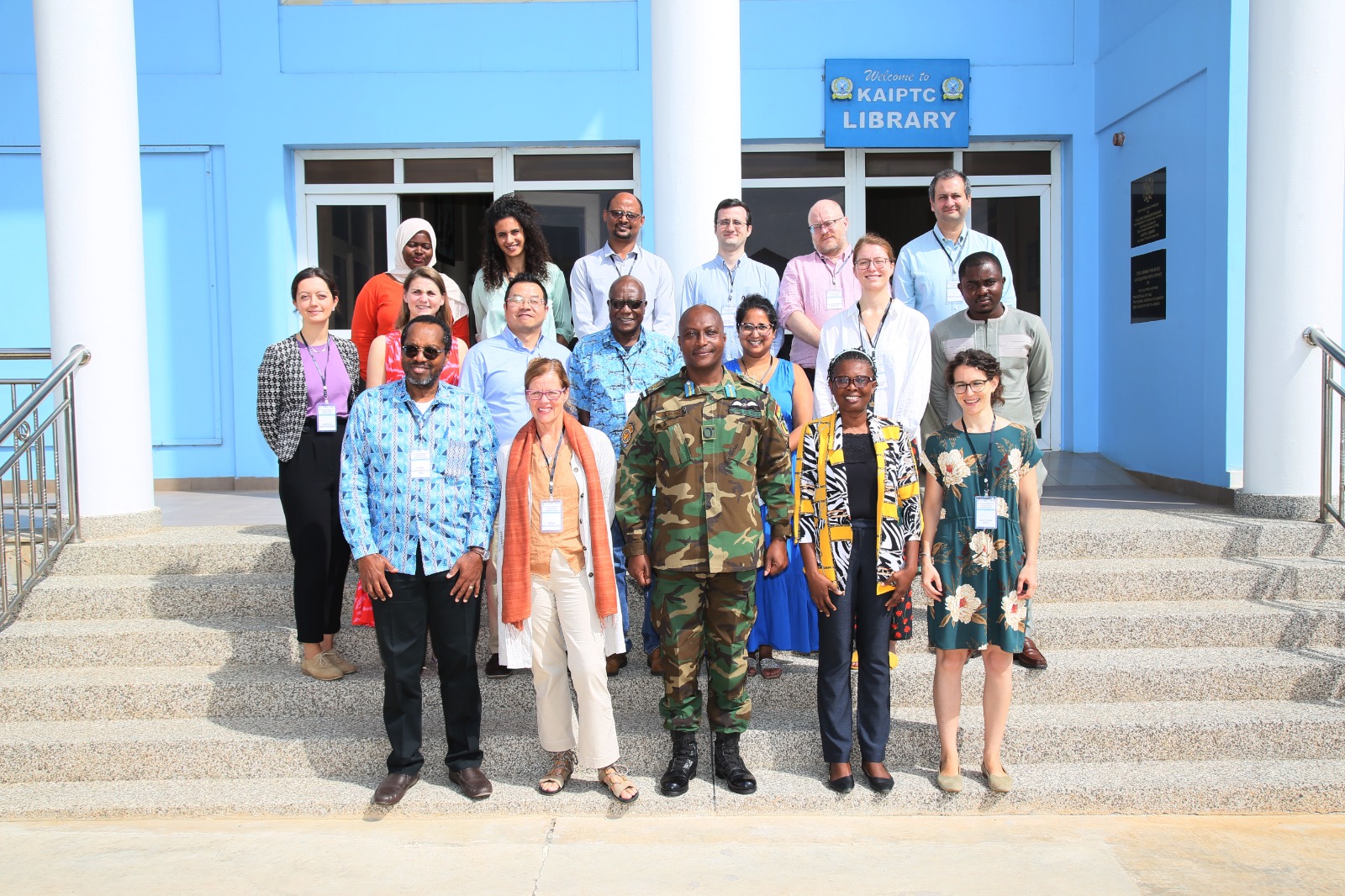A three-day theoretical reflection and empirical investigation workshop, which aims to provide a platform for scholarly discourse on the intricate interplay between coercion and peacebuilding dubbed “Authors’ Workshop – Coercion in Peacebuilding”, commenced at the Kofi Annan International Peacekeeping Training Centre (KAIPTC).
The workshop which assembles a cohort of authors from across the globe, is facilitated by the Peace Research Institute Frankfurt (PRIF), Institute for Peace and Security Studies (IPSS) and hosted by KAIPTC, held its opening ceremony on Wednesday 15 November 2023, with the Deputy Commandant, KAIPTC – Air Commodore (A/Cdre) David Akrong as the Guest of Honour).

He said the genesis of the workshop can be traced back to the 2022 edition of the workshop which also deliberated on coercion in the realm of peacebuilding, and aims to provide nuanced perspectives on coercion’s utilisation in diverse peacebuilding contexts.
He said the primary objective of the collaboration is to engage in both theoretical reflection and empirical investigation, which will involve a thorough examination of the central role that coercion assumes, in influencing the strategies employed by regional and emerging actors, in the context of peacebuilding.
Providing a preview into some of the titles of many drafts that will characterize the deliberations for the three days, A/Cdre Akrong said the evolution of coercion within the realms of physical and structural violence, as well as investigations into the nexus between coercion and the Women, Peace, and Security Agendas, will be explored.

It will also extend to examining the Economic Community of West African States’ (ECOWAS) coercive approaches in sub-regional interventions, and shed light on its role in achieving peacebuilding objectives.
Furthermore, Brazil’s South-South approach, which is considered a non-coercive alternative in African peacebuilding, offering insights into unconventional strategies, Turkey’s post-Westphalian approach, tracing its historical trajectory and emphasising the role of coercion in conflict resolution, will be examined.
Speaking for PRIF Dr Antonia Witt, Director, said the collaborative project is performed in two regards; on one hand it is a key contribution to its overall research program that is overarching a research program spanning three to five years, between coercion and peace.

She said these series of workshops allows PRIF to engage on the topic which brings a broad range of other scholars in the field of peacebuilding, coming from very different perspectives, also drawing from various regional experiences and insights.
Additionally to PRIF, the forum deepens research collaboration with research and publishing institutions on the continent of Africa, such as the PRIF-KAIPTC-IPSS partnership.
23 participants from Germany, Ghana, Ethiopia, United Kingdom, United States of America, Nigeria, Turkey, South Africa, Brazil and China, are participating in the 3-day workshop, with
Dr. Fana Gebresenbet, Director of the Institute for Peace and Security Studies (IPSS) joining the sessions via Zoom.
By Kofi Ampeah-Woode
